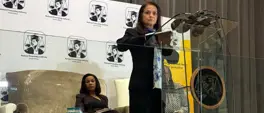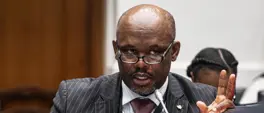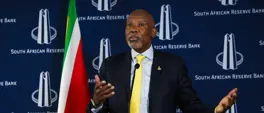SA's banking sector laid bare: 'Disability doesn't imply lack of intelligence'
Palesa Manaleng
19 July 2023 | 10:34Eyewitness News spoke to The Stroke Survivors Foundation, Absa and Blind SA to get a better understanding of the banking experiences of disabled persons - and what banks can consider to better serve their needs.
JOHANNESBURG – South Africa's banking sector has been thrust into the spotlight after Eyewitness News sought to learn how accommodating it is of people living with disabilities.
Many people in this cohort of society are active participants in the economy of the country - meaning financial services providers should step up to meet their needs.
Their disabilities are veritable, meaning they often experience complex obstacles, including accessing financial services with ease.
Eyewitness News spoke to The Stroke Survivors Foundation, Absa and Blind SA to get a better understanding of the banking experiences of disabled persons - and what banks can consider to better serve their needs.
"Disability does not automatically imply a lack of intelligence."
These are the poignant words of Thato Minyuku who lives with aphasia - a disorder that affects ones communication - after suffering a stroke.
Her disability is not overt, but it's there and it has modified her life. Minyuku is a legal consultant for the Stroke Survivors Foundation.
She said communication is a barrier when it comes to accessing banking, along with the lack of braille access for blind people, sign language for deaf people and patience to communicate with an aphasic person.
Minyuku recounts a banking experience that saw her seeking help from her mom.
“Communication is a barrier. For example, about 10 years ago, I tried to engage with FNB because my credit card had expired. It failed, so I called my mother to assist me. I was at the bank, so I signed what was necessary and my mother called on the manager to assist us with dignity and decency,” she said.
Minyuku says she understands that it can be tricky trying to accommodate all disabilities, but it doesn’t make it less frustrating for disabled people.
“The first few times when I received an e-wallet and even the same one from Capitec and Standard Bank, I had to call for assistance because I simply did not understand the ATM directions. It is a challenge to ask for assistance because I am a person with invisible disabilities and most people do not know of aphasia and want me to justify it because I do not physically present myself as a person with a disability.”
Added Minyuku: “I trust the banking sector will see the blocks and barriers in the way of persons with disabilities in the banking sector. Disability does not automatically imply a lack of intelligence. It only asks for accommodation.”
ABSA BANK SAYS IT HAS THE BACK OF DISABLED PEOPLE
Talking to Eyewitness News Absa Bank said they are a full-service bank which has invested in understanding the diverse needs of their customer base.
“We are intentional about engaging customers with disabilities as we find solutions for their needs. To this end, we are leveraging our strategic partnerships with the South African National Council for the Blind and our formalised relationship with the South African Guide Dogs Association for the Blind.”
Absa further pointed out that the organisations is has been working with, were instrumental in assisting them to refine their designs
“We have focused on solving for practical considerations - designing ATM cubicle sizes adequate for wheelchair access, the installation of wheelchair ramps at ATMs where required. All Absa buildings, including branches, comply with SANS 10400 which caters for regulatory view on handicap access. The distribution of ATM and self-service kiosks is also undertaken with consideration to accessibility for disabled customers.”
DIGITAL SERVICES MUST BE ACCESSIBLE TO DISABLED PEOPLE
Blind SA has been advocating for accessible banking for blind and partially sighted persons for some time.
The chairperson of the advocacy and information committee of Blind SA, Tommie Lehmkühl said the organisation wished banks made information available in accessible formats along with trained staff, who are able and willing to assist.
“Online and digital services must be accessible, and ATMs and credit card machines must be accessible. ATM designs are not standardised, rendering it impossible to train blind and partially sighted persons in the use of these devices,” said Lehmkühl.
Blind SA’s Lehmkühl further pointed out that ATMs, in most cases, are not designed to be accessible to blind and partially sighted people thereby compromising their right to privacy and safety.
Eyewitness News contacted other banks ahead of publishing this article, but no responses were received.
Get the whole picture 💡
Take a look at the topic timeline for all related articles.
















